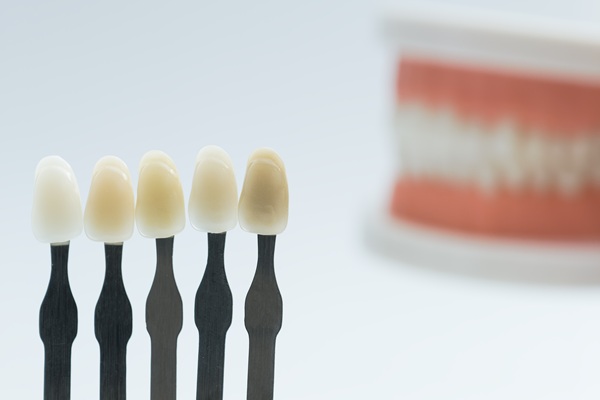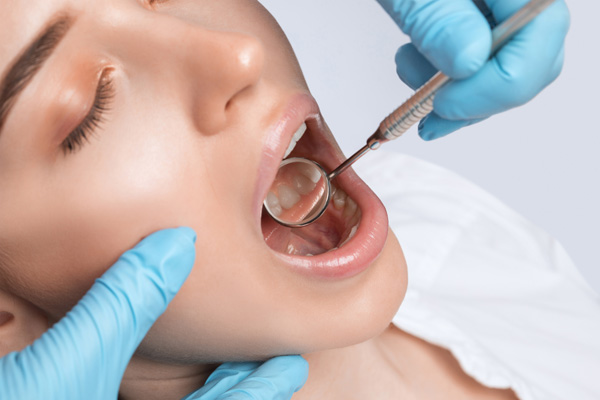 Incorporating good habits into routine dental care on a daily basis can help teeth and gums stay as healthy as possible. Regular dental hygiene is associated with reduced plaque, fewer cavities, and less incidence of gum disease over a person's lifetime. Patients do not need to completely overhaul their oral health routines. Instead, implementing a few small changes at a time can often make daily regimens easier to maintain.
Incorporating good habits into routine dental care on a daily basis can help teeth and gums stay as healthy as possible. Regular dental hygiene is associated with reduced plaque, fewer cavities, and less incidence of gum disease over a person's lifetime. Patients do not need to completely overhaul their oral health routines. Instead, implementing a few small changes at a time can often make daily regimens easier to maintain.
How to care for teeth and gums each day
Both children and adults should develop an oral health routine that can be completed twice a day. A series of steps that are easy to remember, even for school-aged children, can help prevent costly dental problems down the road. Basic components of a good dental care routine should include the following activities.
- Brush for at least two minutes twice a day with a toothpaste that contains fluoride.
- Floss teeth a minimum of once a day.
- Limit sugar in the diet and eat a wide variety of healthy foods.
- Monitor the mouth for potential cavities, swollen gums, or other areas of concern.
- Factor in health conditions such as diabetes that may necessitate a conversation with the dentist or a change in this routine.
Easy ways to implement a stronger dental care routine
Even the most organized patients can often forget certain components of caring for teeth and gums. Schedules become hectic, diets are filled with unhealthy foods in times of stress, and routine dental care such as brushing, flossing, and cutting back on high-sugar foods and drinks can be forgotten on busy days. Patients can utilize the following three tricks to make oral health regimens easier to follow.
1. Associate brushing with mealtime
Adult patients should brush at least twice a day. Setting a timer may help, but it can easily be turned off, snoozed, or otherwise overlooked. Designating brushing as after-breakfast and after-dinner activities helps both adults and children remember to care for teeth in this basic way.
2. Develop a reward system
Reward systems work for children and can motivate adults as well. When adding components to the dental routine or trying to establish healthy habits, including reducing sugar consumption and eating more fruits and vegetables, consider using a habit-tracker app or developing a unique reward system. This could include offering incentives such as extra screen time, a special healthy snack, or a new toy if the oral health care routine is successfully completed for a set amount of time.
3. Consider adding a mouthwash to the plan
Mouthwashes are not just for individuals with gingivitis or bad breath. A good mouthwash can eradicate bacteria and help cut down on plaque that leads to gum disease when it builds up. Patients can ask a licensed dentist if there is any concern about using mouthwash as a part of routine dental care.
Conclusion
Developing a solid at-home oral hygiene regimen is essential for maintaining health between dental visits. Dentists can clean teeth, fill cavities, and educate patients about dental disease, but it is up to each person to maintain routine dental care on a daily basis.
Request an appointment or call Johns Creek Dentistry at 770-623-1427 for an appointment in our Johns Creek office.
Recent Posts
A crucial component of being healthy is routine dental care. When oral health is ignored, harmful bacteria can compromise the rest of the body. Healthy dental practices involve a two-prong approach of visiting the dentist regularly and continuing oral health care at home. Discover more about what is considered routine and effective dental care practices.Making…
Most people understand the importance of regular medical screenings to prevent various illnesses, but many do not realize the relationship between oral health and general health. Routine dental care is an essential preventative measure necessary to ensure good health.Gingivitis and periodontal disease can cause infections that lead to tooth loss, jawbone loss, bite changes, and…
Prioritizing routine dental care is necessary for good health. Unfortunately, some people can find it difficult to care properly for their teeth by brushing, flossing, and seeing a dentist on a regular basis. Patients who disregard dental hygiene and professional care need immediate action to prevent dangerous outcomes.In addition to an unsightly smile, failing to…


